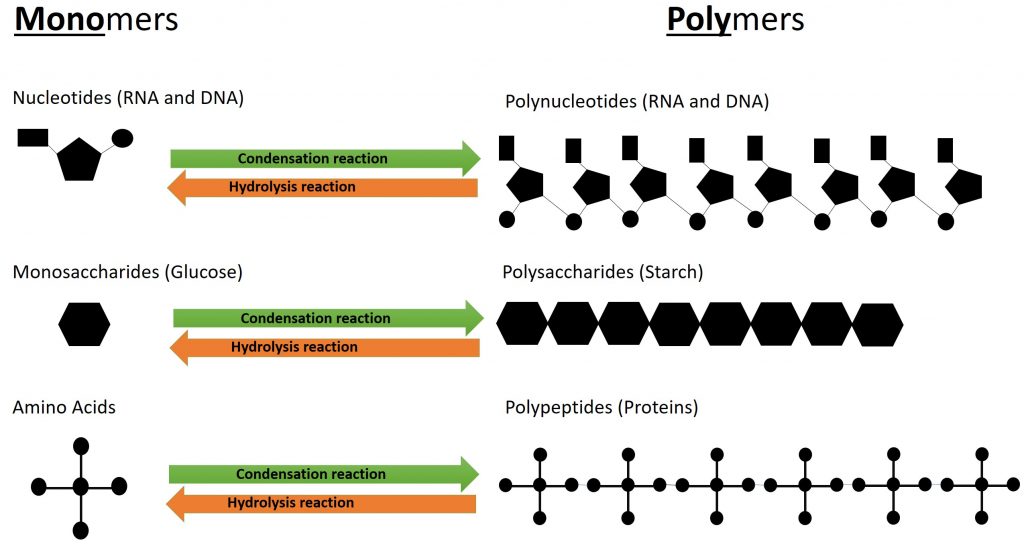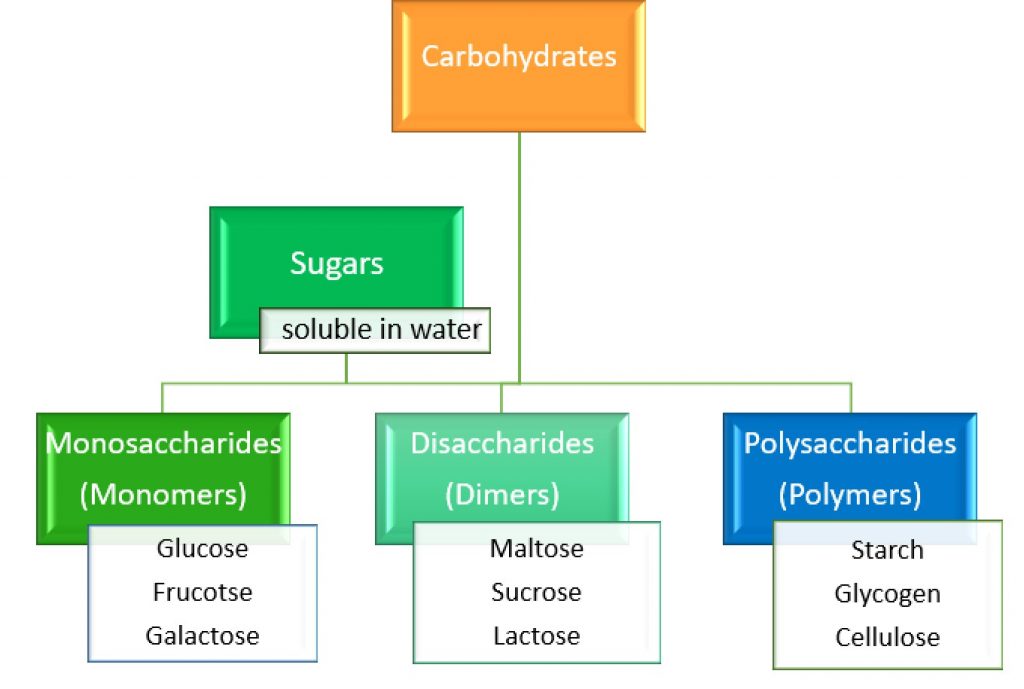Contents
Carbohydrates
Monomers & Polymers
Monomers (mono meaning one, think monobrow!)
Small, single units act as the building blocks to create larger molecules.
Polymers (poly meaning more than two)
Made up of many monomers, usually thousands, chemically bonded together.
For monomers to bond together, a chemical reaction occurs, which is a condensation reaction. Condensation reactions involve the removal of water. This removal of water from monomers enables a chemical bond to form between the monomers. A hydrolysis reaction is the opposite of this - Hydro (water) lysis (to split). A water molecule is added between two bonded monomers (within a dimer or polymer) to break the chemical bond.
Carbohydrates
Carbohydrates are key biological molecules that store energy and can provide structural support to plant cells. Carbohydrates can be classified into three groups determined by how many units they are made of, as seen in the flow diagram below:
Larger carbohydrates, such as sucrose and starch, are made from monosaccharides. The monomers of carbohydrates are known as monosaccharides, and glucose, galactose, and fructose are three common examples. Monosaccharides are all sugars that are soluble in water. Their functions are either to provide energy or they are building blocks to create other molecules. All carbohydrates contain three elements: carbon, hydrogen, and oxygen (CHO). The general formula for a monosaccharide is CnH2nOn, where n = the number of carbon atoms it contains.
Glucose
- α glucose and β glucose only differ structurally on one of their carbon atoms. Which carbon atom is it that the H and OH swap position on?
- Your answer should include: 1 / One
- Glucose is an abundant and important monosaccharide. What is its function?
- Your answer should include: energy / storage / structural / support
- Name three common monosaccharides:
- Your answer should include: glucose / galactose / fructose
- Which type of carbohydrates are classed as sugars?
- Your answer should include: monosaccharides / disaccharides



